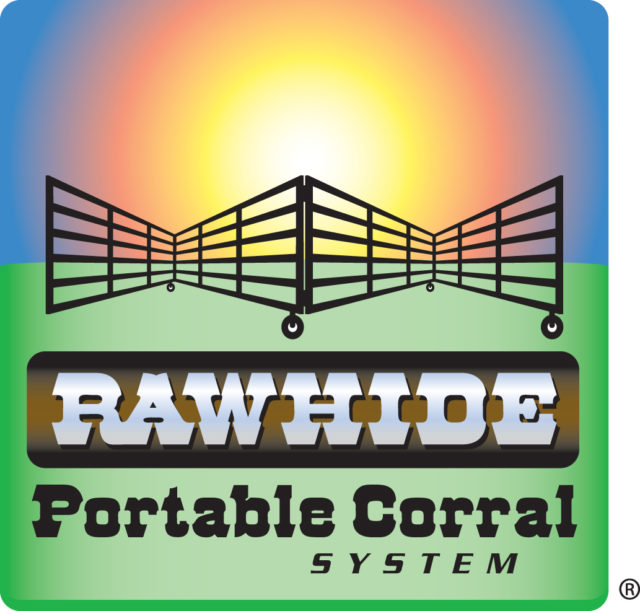A strong HHP begins with a yearly production calendar that includes cattle nutrition, reproduction management, vaccination schedules and marketing – all of which are critical to sustainable beef cattle production.
Management practices can be better matched with cattle needs by looking at the annual production cycle month-by-month.
The University of Nebraska – Lincoln Animal Science Department has an example of a beef production calendar.
Once a production calendar is developed, a producer can work with his or her veterinarian to plan a specific preventative health program for their herd.
The veterinarian can help a beef operation best tailor health management to deal with local diseases, parasites and other regional health issues.
Specifically for young calves (birth to 3 months old), the core vaccination program should include four-way IBR, BVD, PI3, BRSV; two-way Pasteurella and four-way to seven-way Clostridial.
There are additional considerations, such as fly control and implanting, producers should discuss with their veterinarians to best meet the herd needs and goals.
Depending on labor and timing, developing a strong plan can improve effectiveness and economics for the operation.
Additional planning and consideration is needed when developing a preconditioning program two to four weeks prior to weaning; for more information, read the UNL NebGuide G2248 “Economic Considerations for Preconditioning Calves for Feedlots,” which also can be found on the University of Nebraska beef website.
In addition to vaccination of young calves, producers need to develop plans for good management practices for castration, dehorning and branding (if applicable).
Beef Quality Assurance (BQA), in a collaborative effort with veterinarians, animal scientists, cattle industry leaders, production managers and producers, have put forward a consensus opinion for achieving optimal outcomes.
The following guidelines are not intended to be exclusive of any one specific technique over another but are focused on the animal and are aimed to satisfy scientifically valid and feasible approaches to meeting cattle health and welfare.
 Castration of beef cattle is performed to reduce inter-animal aggression and injuries, improve human safety and avoid the risk of unwanted pregnancies in the herd.
Castration of beef cattle is performed to reduce inter-animal aggression and injuries, improve human safety and avoid the risk of unwanted pregnancies in the herd.
Where practical, cattle should be castrated before 3 months old or at the first available handling opportunity beyond that age. The use of methods that promote the well-being and comfort of cattle should be encouraged.
It is recommended that all animals not used for breeding purposes be castrated and allowed to heal before leaving the operation of origin. Consult your veterinarian for procedures/methods most appropriate for your herd.
Dehorning of naturally horned cattle is common to reduce animal injuries and for human safety. Cattle should be dehorned while horn development is still at the horn bud stage or at the first available handling opportunity.
This is because the procedure involves less tissue trauma at that age. Methods of dehorning include removal of the horn buds with a knife or dehorning spoon, thermal cautery of the horn buds or application of chemical paste to cauterize the horn buds.
Producers should seek veterinarians’ guidance when developing plans and selecting procedures.
Branding of calves may be the only practical method of permanent identification or requirement of ownership. If calves are hot iron- or freeze-branded, it should be accomplished quickly, expertly and with the proper equipment. BQA guidelines recommend branding on the hip area – and never on the face or jaw.
Last, remember to follow all product labels pertaining to dosage, administration, storage and withdrawal times, and to keep good health records.
Calving time can be busy, stressful and labor-intensive; by developing a HHP, your operation will be prepared to start your young calves off to a healthy, safe and productive life.
In addition to the care and well-being of your herd, BQA guidelines are also developed with the health and safety of the producers and employees who handle these animals in mind. ![]()
For more information about Nebraska Beef Quality Assurance or to get BQA-certified, visit Nebraska Beef Quality Assurance Program or contact Rob Eirich, extension educator and Nebraska Director of BQA, a member of the University of Nebraska Beef Action Team, at (308) 632-1230.
Beef Quality Assurance is a nationally coordinated, state-implemented program that provides systematic information to U.S. beef producers and beef consumers of how common sense husbandry techniques can be coupled with accepted scientific knowledge to raise cattle under optimum management and environmental conditions.
Eirich directs the program in the state of Nebraska, in a partnership between Nebraska Extension, Nebraska Cattlemen and the Nebraska Beef Council.

- Rob Eirich
- Director of Beef Quality Assurance
- University of Nebraska – Lincoln





.jpg?height=auto&t=1735664860&width=285)



